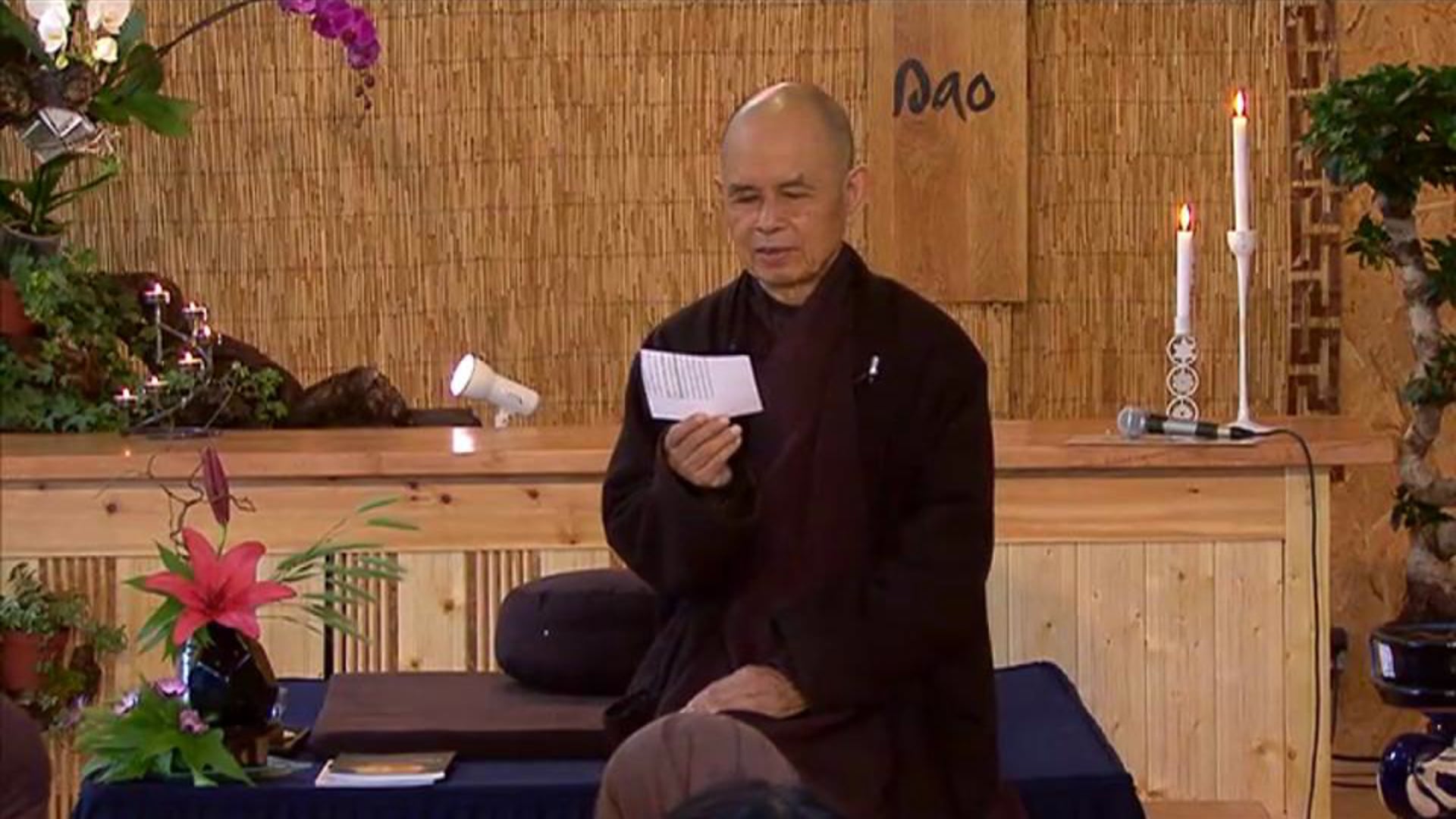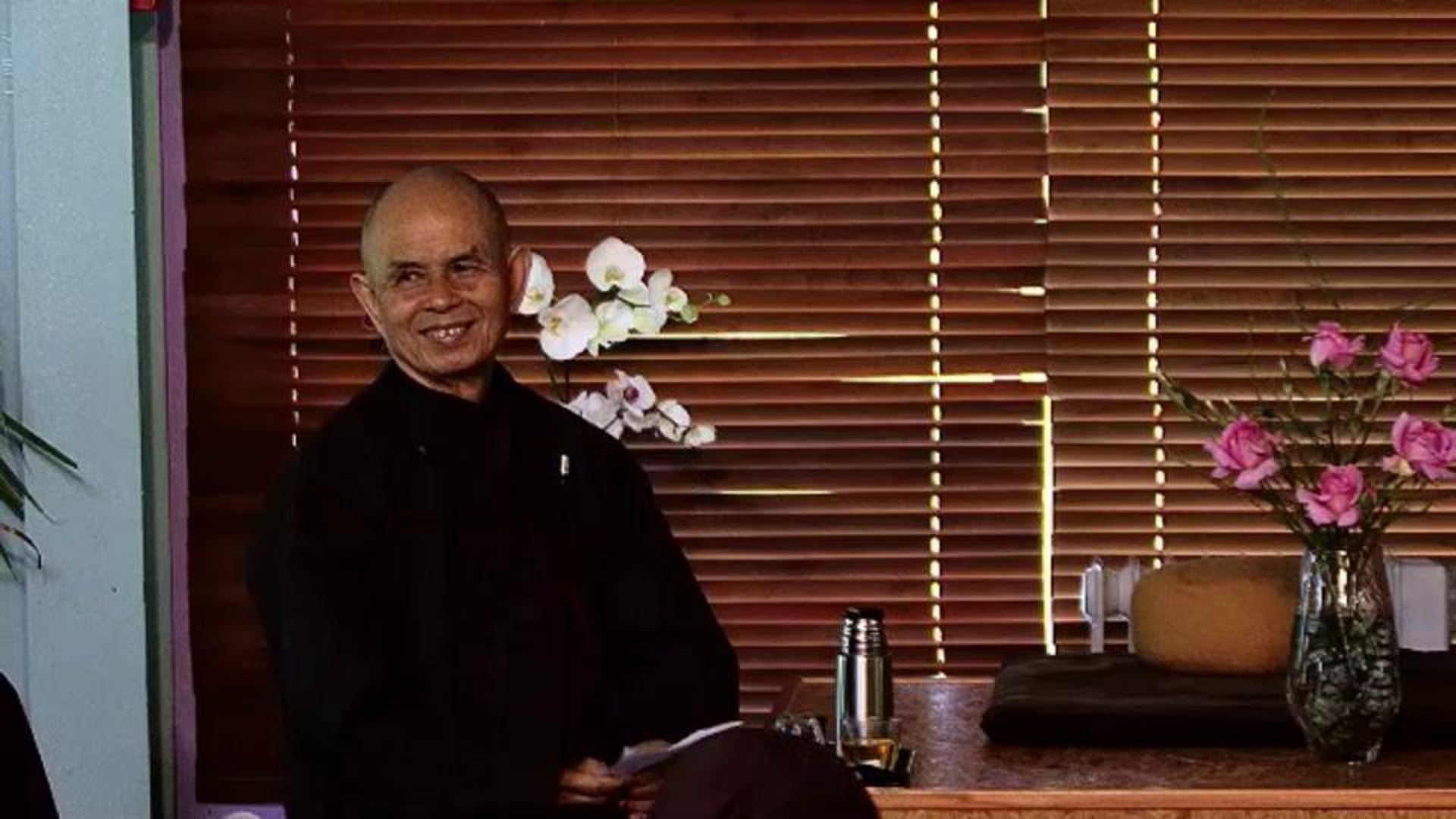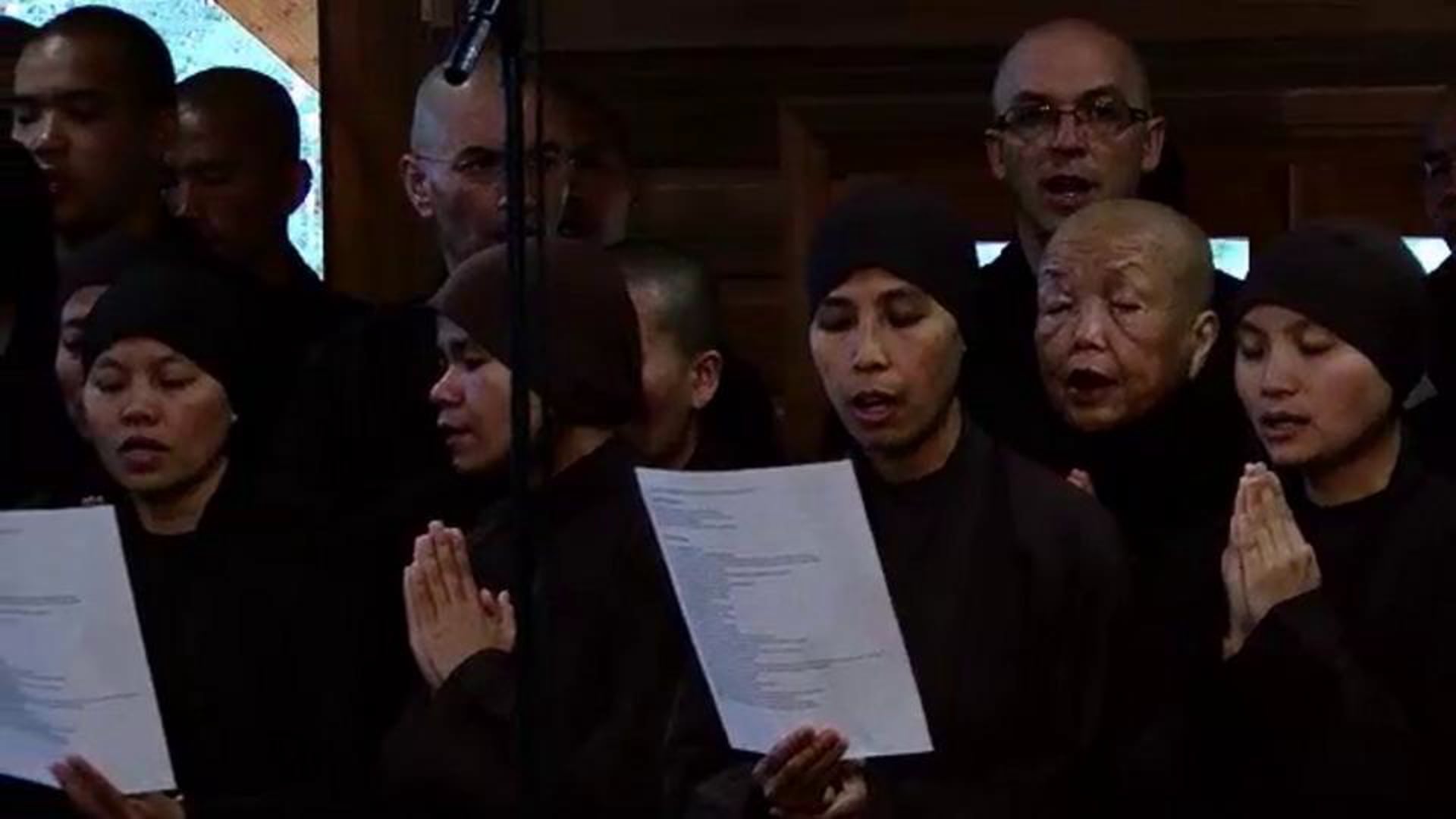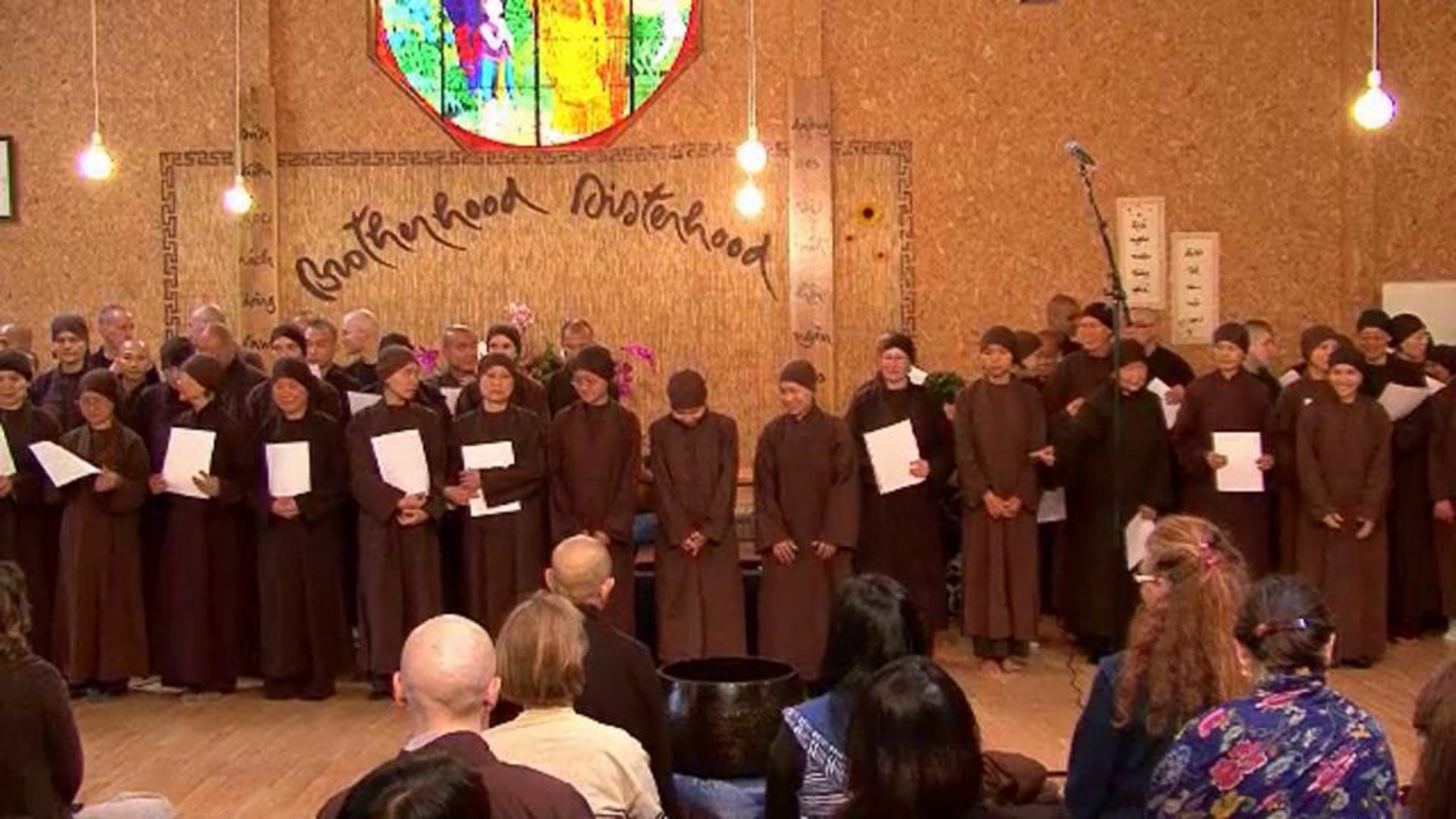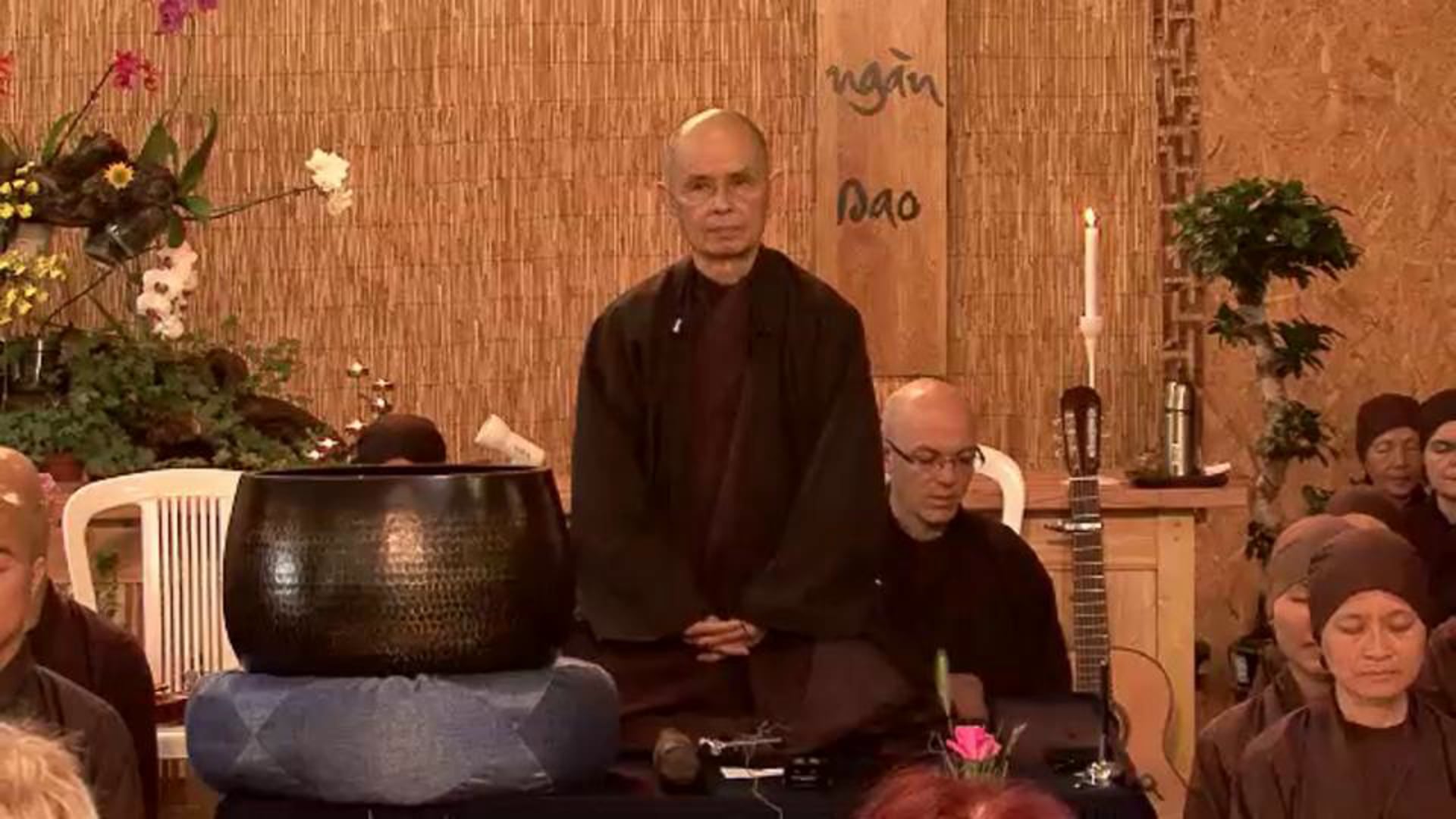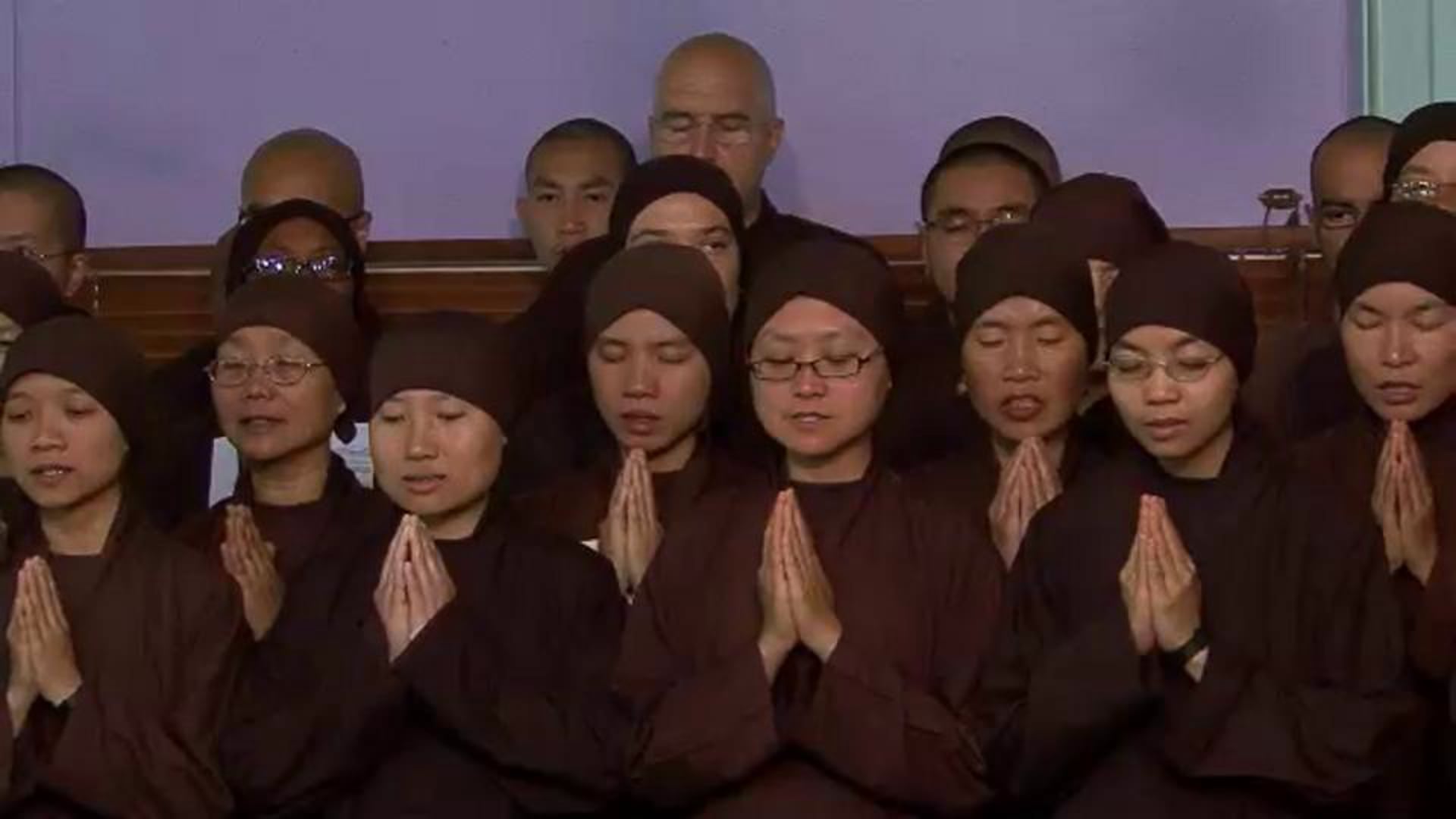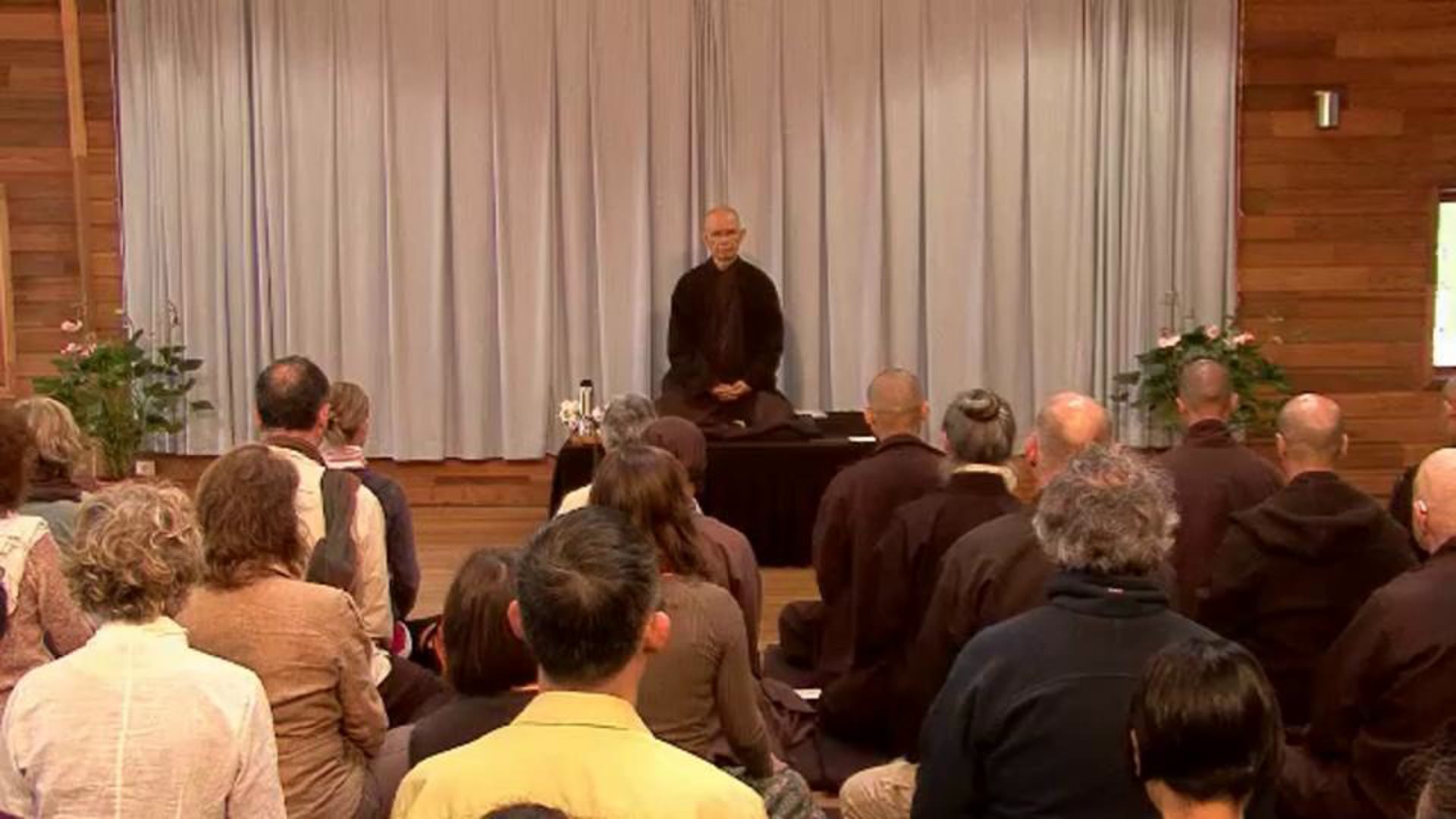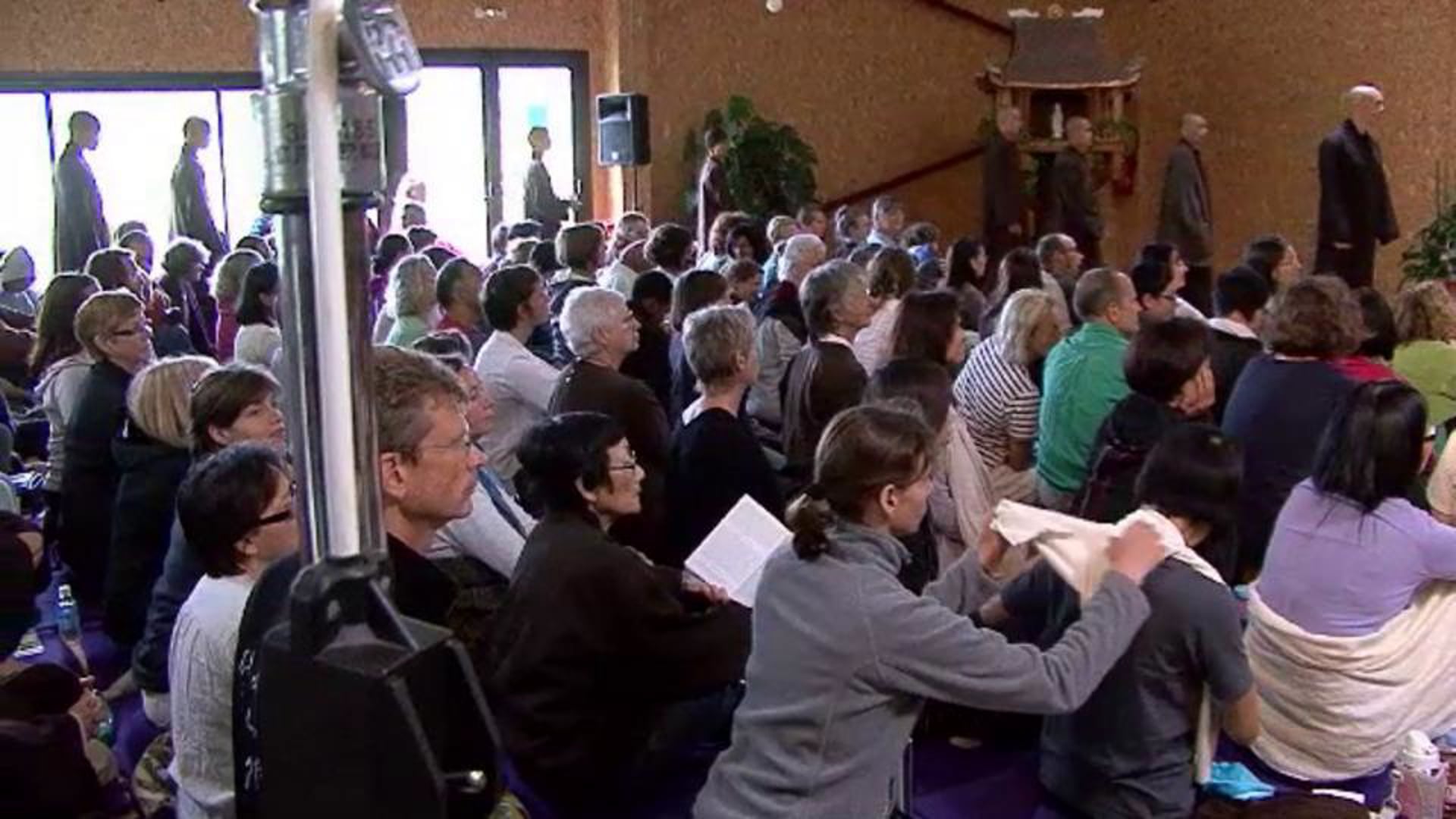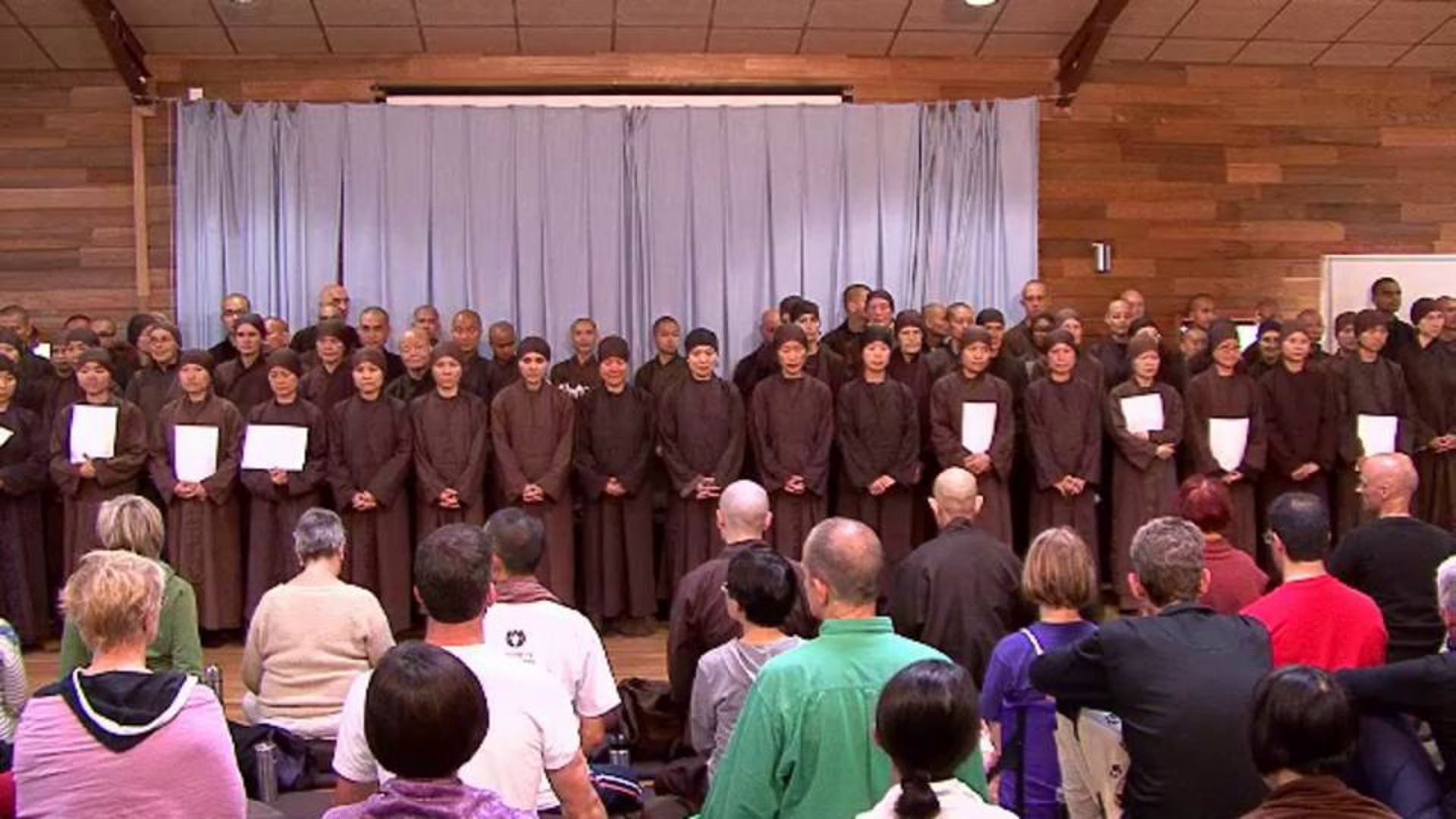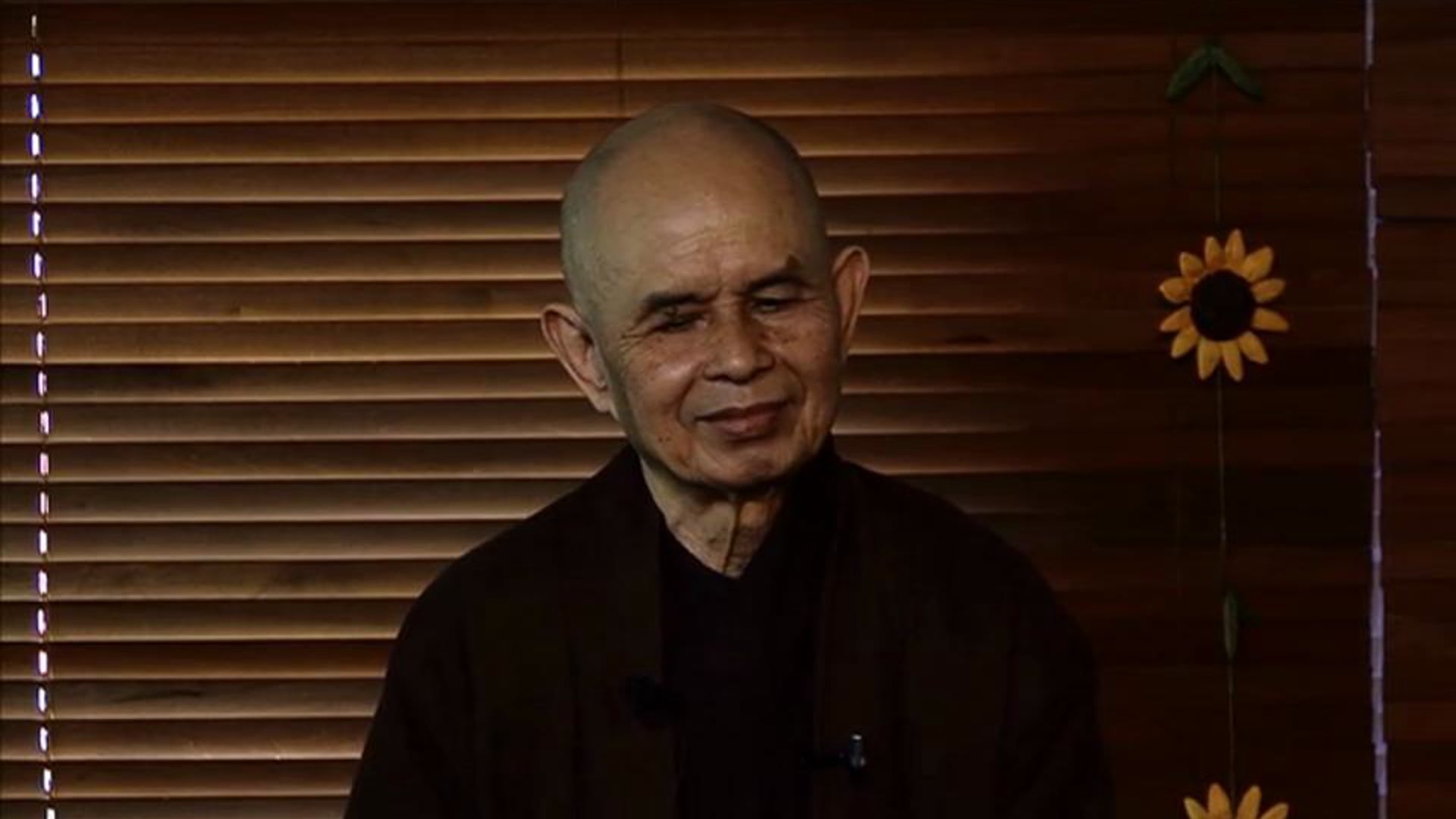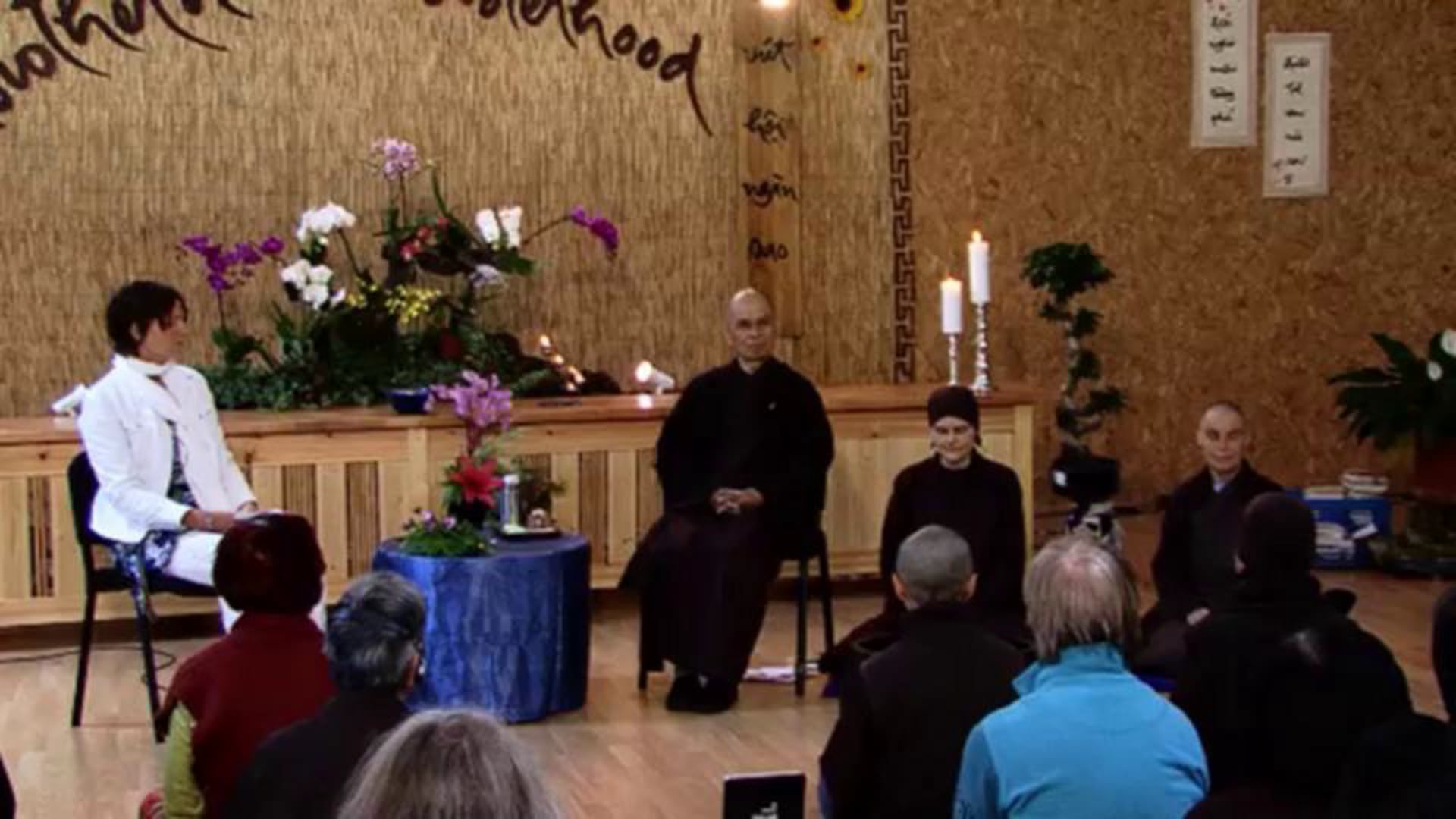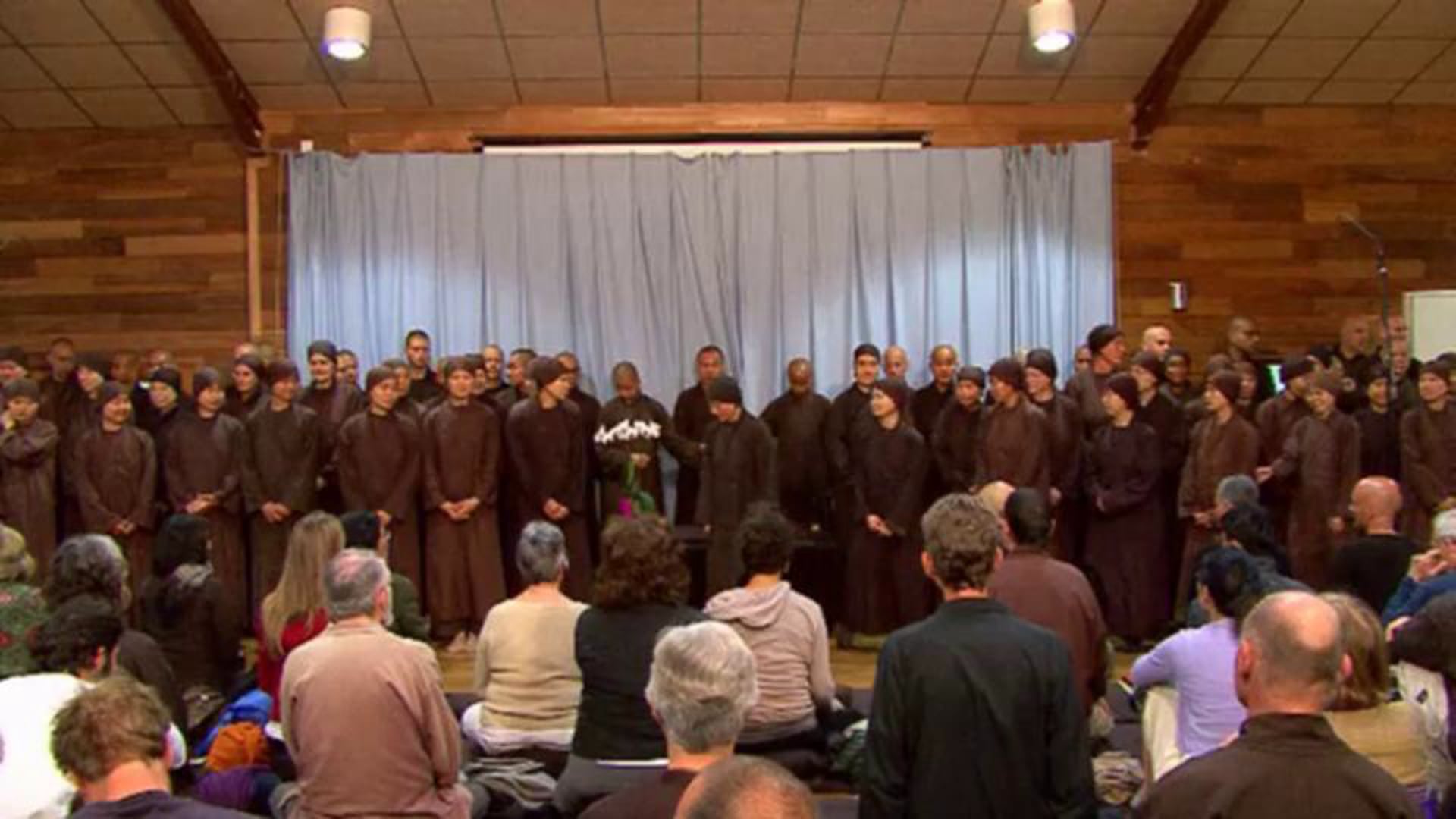This is the fifth Dharma talk of Thay from the Science of the Buddha Retreat, offered in the New Hamlet of Plum Village on Thursday, June 7th, 2012.
0:15 Contemplations Before Chanting
1:00 The Heart of Perfect Understanding
5:45 Coeur de la Comprehension Parfaite
15:40 Three Bells
17:00 Introduction to Questions & Answers Session
21:50 Question 1: What’s the difference between feelings and mental formations? Further questions about feelings and the categories of mental formations.
28:47 Question 2: Some members of our Sangha go as volunteers to the hospital to the palliative department. Sometimes we see that the pain is too much, that it doesn’t make sense. Even medicines don’t relieve the pain. Sometimes I think that if the patients ask me to help them to die, that I would do it. I don’t care about karma. Are there cases when the pain is too much that it would be right action to help someone to die?
39:50 Question 3: I can see all the non-Thich Nhat Hanh elements in you. I can understand that you are the moon, and the sun, and the Earth, and the food, and the stars. I’m beginning to understand that I’m made up of all my ancestors, my teachers, the Buddha, the food, the animals and life. After the beautiful chanting and prayers, the sister invited us to let go of the superiority complex, the inferiority complex, and the equality complex. All my life I have felt very small. I have always seen the monks and nuns as so far ahead of my small self. Can you help me to understand the superiority complex teaching, and why I should embrace the equality complex, because I don’t feel equal to you?
52:37 Question 4: Our local Dharma teacher is very wise, but sometimes the skillful means are lacking. How can we support our teacher in a difficult time?
56:07 Question 5: In the past two lectures you have explained the four meditations. I have problem in the last part, in that whenever I hear discourse, my mind starts debating. That itself becomes a hindrance. Is it that I will not care for that last part, of being/non-being, interbeing. How do I reconcile, or how do I go with my practice?
1:09:00 Question 6: Please help me to reconcile impermanence of consciousness with the traumatic experience of my wife’s death.
1:18:35 Question 7: Is it possible for the mind to be without the body? What happens to the mind after the body passes?
1:30:22 Question 8: About trusting and believing. If somebody is in deep pain, and during his life didn’t build trust, how can he ask for help from the Sangha? How can we build trust with the practice?
1:38:10 Question 9: I work as a psychiatrist in suicide prevention. I find the severe mental disorder like bi-polar, schizophrenia. I’m concerned that your teaching on dealing with strong emotions may cause people to refrain from drug treatment when they need it. Please respond. And Question 10: When I have a strong emotion during meditation, I find that I breathe harder in order to flow with the emotion. What do you mean by being tender with your breath?
1:44:00 Closing
